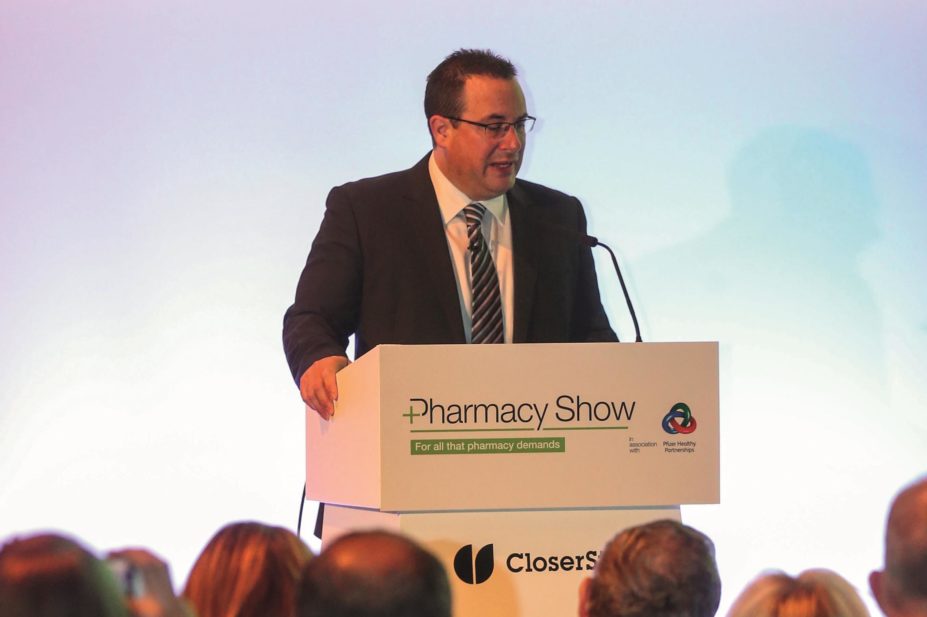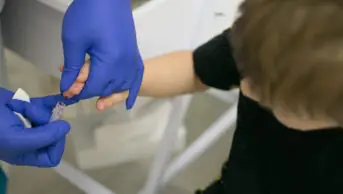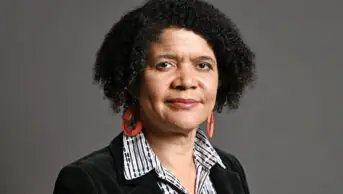
The Pharmacy Show
The community pharmacy sector needs to continue to collect evidence of the sector’s worth in order to influence commissioning in the NHS.
Alastair Buxton, director of NHS Services at the Pharmaceutical Services Negotiating Committee, which represents pharmacy contractors, told delegates at the Pharmacy Show in Birmingham on 25–26 September 2016 that evidence generated by community pharmacists could support lobbying for increased commissioning of pharmacy-led services.
He said that by using agreed measures and focusing initially on one or two health areas, a lot of data could be generated and compared across and between regions. He emphasised that there is a need for consistency in recording across the country.
To make the most of the work that is already being done to improve patient outcomes and save costs, Buxton advised that data should focus on patient outcomes rather than simply the volume of prescriptions dispensed or items sold. He highlighted the work done by community pharmacists to generate data for a report prepared by PricewaterhouseCoopers on the value of community pharmacy. The data were particularly valuable because they included the numbers of people who come in to ask for support or advice; patient engagement; adherence to medications or to support programmes, such as smoking cessation or weight loss services; and the numbers of referrals to and from the pharmacy (and therefore the reduction of workload for GPs and A&E).
Also speaking at the event, Claire Ward, chair of Pharmacy Voice, which represents three pharmacy trade bodies, said evidence on outcomes will allow pharmacies to look at NHS England’s problems and offer effective solutions, a move she says could potentially change the narrative.
Delegates were also told that one of the important things that pharmacists can offer is their ability to take healthcare to where the patients are.
Duncan Stephenson, director of external affairs at the Royal Society for Public Health (RSPH), said this could be in a high street pharmacy, where access is much easier thanks to the opening hours and lack of need for an appointment. He added that patients tend to be reassured by the anonymity of a community pharmacy.

Source: The Pharmacy Show
Delegates were told that evidence collected by pharmacists should focus on patient outcomes rather than simply the volume of prescriptions dispensed or items sold
Also speaking at the conference, Graham Stretch, senior clinical pharmacist at the Ealing GP Federation, highlighted the work that pharmacists are doing in GP surgeries and care homes, where pharmacists can offer services tailored to the location. Consistent and widely available evidence is required to realise the impact of these provisions, he added, and it will remain difficult for pharmacists to prove their ability to take a place in any of the national and local decision-making arenas.
The report published by PricewaterhouseCoopers on the value of community pharmacy was cited a number of times during the conference.
Published in early September 2016, the ‘The value of community pharmacy’ report showed the value of data in confirming the role of pharmacists by showing how services provided by community pharmacy delivered £3bn in avoided costs, offsetting the £2.8bn of Department of Health funding for the sector.
The report also used data to demonstrate that if these services — which included supervised consumption, emergency hormonal contraception provision, minor ailments, delivering prescriptions and managing drug shortages — were not applied, then the loss of value would extend beyond healthcare.
Stephenson went on to present data from healthy living pharmacies (HLPs) in Portsmouth, where there was a 140% increase in pharmacy-led smoking quits compared with the previous year. He also highlighted a survey of West Yorkshire HLPs, which showed that 60% of people seeking advice or help at the pharmacies would have gone to see their GP if the pharmacy wasn’t available, while 21% would have done nothing.
Dave Branford, independent consultant pharmacist and member of the Royal Pharmaceutical Society’s English Pharmacy Board, also presented data that showed how a pharmacist based in a care home could cut medication waste significantly.
He pointed to reductions in medication errors of more than 90% across various care home projects, as well as reductions and withdrawals of psychotropic drugs in more than 60% of residents.
- This article was amended on 10 October 2016 to correct a reporting error and to better reflect Alastair Buxton’s comments about influencing commissioning boards.


